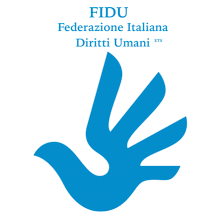Empowering Users
Commitment 17
In light of the European Commission's initiatives in the area of media literacy, including the new Digital Education Action Plan, Relevant Signatories commit to continue and strengthen their efforts in the area of media literacy and critical thinking, also with the aim to include vulnerable groups.
We signed up to the following measures of this commitment
Measure 17.1 Measure 17.2 Measure 17.3
In line with this commitment, did you deploy new implementation measures (e.g. changes to your terms of service, new tools, new policies, etc)?
No
If yes, list these implementation measures here
Do you plan to put further implementation measures in place in the next 6 months to substantially improve the maturity of the implementation of this commitment?
No
If yes, which further implementation measures do you plan to put in place in the next 6 months?
Measure 17.1
Relevant Signatories will design and implement or continue to maintain tools to improve media literacy and critical thinking, for instance by empowering users with context on the content visible on services or with guidance on how to evaluate online content.
QRE 17.1.1
Relevant Signatories will outline the tools they develop or maintain that are relevant to this commitment and report on their deployment in each Member State.
FIDU has actively developed and maintained several resources to empower users in evaluating and engaging with online content. One such tool is the MLFD Booklet (
https://fidu.it/wp-content/uploads/MLFD-Booklet.pdf ), produced within the Media Literacy for Democracy project, under the CERV Programme. This booklet remains freely available online and serves as a resource for citizens, helping them recognize and counter disinformation. The MLFD Booklet is also designed to be used by trainees and educators during workshops and training sessions. It provides practical guidance on how to evaluate online content, understand the context of the information presented, and critically assess the sources of news and information. This is part of FIDU's ongoing commitment to supporting citizens, educators, and vulnerable groups in strengthening their media literacy and critical thinking abilities, thereby improving their resilience to the challenges posed by disinformation and foreign interference.
Measure 17.2
Relevant Signatories will develop, promote and/or support or continue to run activities to improve media literacy and critical thinking such as campaigns to raise awareness about Disinformation, as well as the TTPs that are being used by malicious actors, among the general public across the European Union, also considering the involvement of vulnerable communities.
QRE 17.2.1
Relevant Signatories will describe the activities they launch or support and the Member States they target and reach. Relevant signatories will further report on actions taken to promote the campaigns to their user base per Member States targeted.
During the reporting period, FIDU’s activities related to media literacy and the fight against disinformation have focused on 4 main areas:
- Advocacy: Among the main activities in the field:
FIDU co-hosted the MLFD Final Conference held online on March 19th, which gathered over 120 participants from 10 EU countries, to discuss disinformation during the war in Ukraine and the European elections and present the project’s final recommendations. On July 11, FIDU organized the event Media Literacy Strategies, which was hosted in the Italian Parliament and brought together MPs, CSOs, journalists, and experts to present and discuss the MLFD project findings and policy recommendations. On November 28th, FIDU co-organised the international conference Countering Disinformation as a Global Challenge, in cooperation with the European Council of Foreign Relations (ECFR) and the Embassies in Rome of the Republic of Poland, Estonia, Latvia, Lithuania, and Ukraine, which gathered representatives of institutions and experts to discuss and coordinate strategies to counter disinformation and foreign interference. Within the New Media Literacy Strategies to Counter Antisemitism project, funded by the Coalition to Counter Online Antisemitism (CCOA) through the Google.org Foundation, FIDU hosted a final conference at the Italian Senate in December 2024, presenting the final report and tailored policy recommendations for combating online antisemitism through media literacy.
- Training: Within the framework of the MLFD and the New Media Literacy Strategies to Counter Antisemitism projects, FIDU organised and implemented several national and international trainings and workshops, both in person and online, mostly targeted to students, young professionals, and media workers.
- Participation in cross-sectoral activities: FIDU participated in several events aimed to exchange best practices and insights on media literacy and the current challenges. In particular, on June 3rd FIDU participated in the closed-door workshop Disinformation Storm – Managing the Unmanageable organised by ECFR. On November 7th, FIDU participated in the Media Literacy Cluster Meeting, specifically in the panel session “Mis-/disinformation, democracy, and values, at the European Commission headquarters in Brussels, which was organised by the European Education and Culture Executive Agency (EACEA) and brought together experts from diverse sectors across Europe. On November 25th-27th FIDU participated in Warsaw in the international conference Mainstreaming Digital Human Rights: a Unified Approach to Counter Online Antisemitism Beyond 2024, organised by ISD and where FIDU presented the final results of the New Media Literacy Strategies to Counter Antisemitism project.
Measure 17.3
For both of the above Measures, and in order to build on the expertise of media literacy experts in the design, implementation, and impact measurement of tools, relevant Signatories will partner or consult with media literacy experts in the EU, including for instance the Commission's Media Literacy Expert Group, ERGA's Media Literacy Action Group, EDMO, its country-specific branches, or relevant Member State universities or organisations that have relevant expertise.
QRE 17.3.1
Relevant Signatories will describe how they involved and partnered with media literacy experts for the purposes of all Measures in this Commitment.
For the above-reported activities FIDU partnered with media literacy experts, especially from European universities, EDMO Ireland, the Italian Digital Media Observatory (IDMO), the Italian Communications Authority (Agcom), as well as several CSOs with relevant expertise in media literacy and disinformation.
Additionally, FIDU participated in meetings and events with EU institutions, notably the EEAS – East StratCom Task Force, as well as Europe Direct, EACEA, and DGs representatives.
